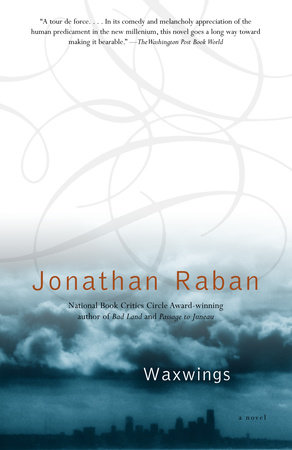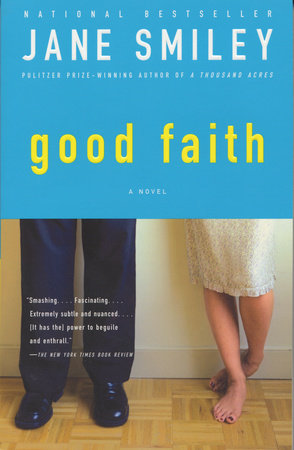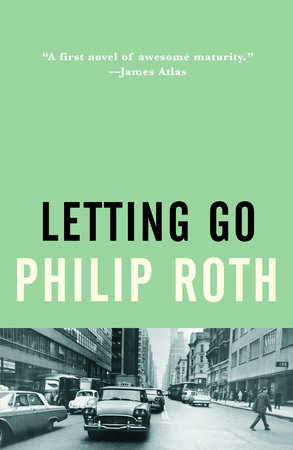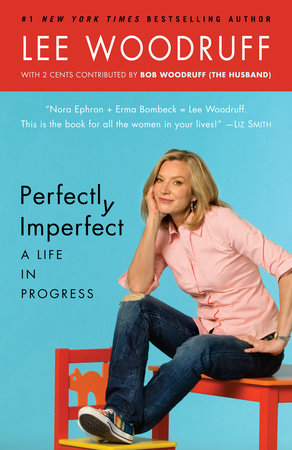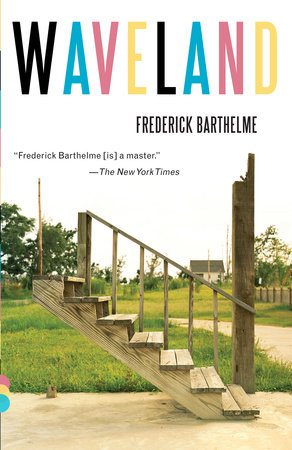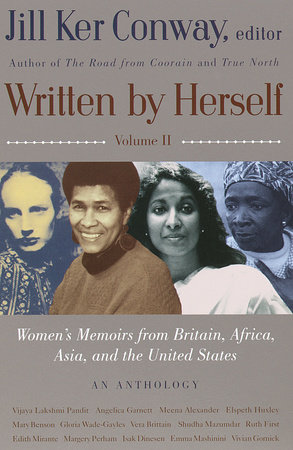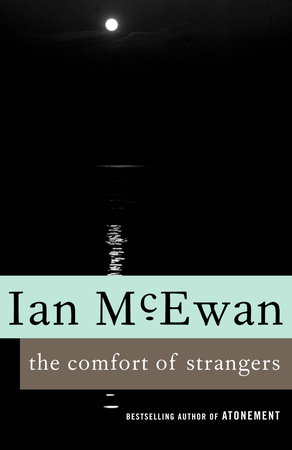Jonathan Raban talks to Jonathan Raban:
So it’s a novel this time. Your first?
No, but it’s been a long time between drinks. The last one—Foreign Land—came out in 1985. But Waxwings is my first historical novel.
Historical? It’s set around the turn of 1999/2000.
Doesn’t the Millennium now seem almost as remote as the Eisenhower era? In the winter of 1999 America was rich, and getting richer by the minute. It was the age of “irrational exuberance,” as the Chairman of the Federal Reserve nicely put it. And Seattle, where Waxwings takes place and where I live, felt like the most happening city in the whole of the U.S. I remember going to a Christmas party in ’99, and talking to three women—all in their earlyish thirties—sitting in line on a sofa and holding unsipped glasses of champagne. Each of them was a paper millionaire, riding high on her stock-options. By late March, when NASDAQ had begun to tank, they were all unmillionaires, and now Seattle boasts one of the highest unemployment rates in the nation. First the dot-com bubble burst, then came 9/11. “The past is a foreign country”is the phrase that comes to mind, and the Seattle winter of ’99 now seems like a strange and distant age of innocence. Yet all the clues to the future were there to read—right down to the arrest, in December ‘99, of an Algerian al-Qa’ida terrorist at the Washington State border. The WTO riots, the mayor’s emergency cancellation of the New Year festivities, the jittery social high around Christmastime, the crash of the Seattle-bound Alaskan Airlines flight in January, all look now like portents that we were then too blind to see. One of the pleasures of writing the book was that of course I knew the world that was waiting, just around the corner, for my characters, but they didn’t. That’s why it’s a historical novel.
When you were writing it, you muttered something about wanting Seattle, the city, to be a major character in the book.
As you well know, I’ve been writing obsessively for years about place, about people’s place in place, and about their displacement in it. Seattle’s a place where everyone seems to come from somewhere else, whether from England, or China, or Nebraska, or New Jersey. In that sense, we’re all immigrants here, whatever our original nationality—and Seattle, more than most cities, is a kind of repository of immigrant hopes and fantasies. From the new hire at Microsoft to the fresh Korean face at the dry-cleaner’s, we’re all new-lifers, somehow expecting Seattle to deliver our own version of The American Dream, which puts a considerable strain on the rather makeshift and threadbare social fabric of the city. The Seattle of Waxwings is a place where everybody is busily trying to become someone else—to be happier and richer than the person he or she was before coming here—and where nobody feels quite at home. It’s the national capital of self-reinvention. The only character who is a Seattle native is four-year-old Finn, and he’s not a happy camper, marooned as he is in this society of chronic becomers. Finn, a true child of Seattle in the ‘90s, is the touchstone-character at the heart of the book.
“Becomers,” you say. Like Tom and Chick…
Thanks for the prompt. Yes, Tom Janeway arrives in the city legally, on a 747, and Chick is an illegal who arrives in a container after a hideous voyage across the Pacific on which two of his companions die. One’s a Hungarian-born Englishman, the other’s a Chinese thief, but they are blood-brothers beneath the skin, both captivated by the American Dream. They’re a pair, like yin and yang, systole and diastole. The Englishman is a bumbling, self-absorbed intellectual, a writer, a regular commentator for NPR’s “All Things Consid—”
—sounds a lot like you…
Nonsense. Me self-absorbed? As I was saying… The Chinese guy’s a can-do handyman; street-smart, quick on the uptake, someone designed by nature to become an American. He has the guile it takes to reinvent oneself from scratch. He is—after Bill Gates—Seattle’s most canny and competent citizen. I had great fun writing him because he possesses all the qualities that I lack. Looking out through Chick’s eyes, I saw a world full of infinite possibility—an enviable view. Chick’s progress through Seattle is as meteoric as the career of any Internet entrepreneur, but it’s grounded in the solid and the actual; in tangible things like houses, trees, asbestos, ships. The money he makes sticks to him, unlike the fortunes that are made, and as quickly unmade, in the virtual world.
You enjoyed writing Chick. What I enjoyed was building the company we call GetaShack.com. Even in 2003, I still think we’ve got a business plan that would work, if only we could find a venture capitalist to support us. It’s a classic 1990s Seattle enterprise, spinning money out of nothing much, by way of the World Wide Web, and a lot more plausible than half of the real companies that found their way on to the Nasdaq index and boomed extravagantly before they went bust in 2000 and 2001. All we need is a sympathetic venture capitalist and we could be coining money out of realtors, supermarkets, restaurants—we could be as big as Amazon…
That’s so Nineties. Anyway, we know that GetaShack probably folded. But it boomed just long enough to make Tom Janeway’s wife, Beth, richer than she could have dreamed of becoming when she left Smith College to pursue a career in journalism. Beth’s lucky to catch the wave, and, when her options vest, to have sufficient money to reinvent herself in a new mold…
…while her husband Tom, too old and otherwise preoccupied to reinvent himself, is reinvented instead by other people, as the “person of interest” in a particularly nasty case of child abduction and murder.
Well, Tom says near the beginning of the book that his ideal novel is one in which almost nothing happens. As a writer, Tom dreams of being a kind of Nicholson Baker. But it’s his fate to live in a novel where rather a lot of things, none of them welcome, happen to him. Imagine Nicholson Baker appearing on America’s Most Wanted… But Tom pretty much deserves what he gets: his wife exasperatedly describes him as “like fog in human form,” with his literary allusions and his air of general abstraction from the world. Becoming a suspect in a murder case is just what he needs to wake him up. I feel a lot of sympathy with Detective Paul Nagel, the officer in the King County Sheriff’s Department whose job it is to bully Tom back into reality.
You are an Englishman. You’ve lived in America for more than a decade, but even so, don’t you think you’re being a bit—as they say in England—previous, to be writing an American novel?
Oh, it’s not an American novel. At least, I don’t think of it as that. I think of it more as an English social comedy which happens to be set squarely in an American city. While I was writing it I read the complete works of E.M. Forster, Evelyn Waugh, and P.G. Wodehouse. They’re the very English tutelary deities who haunt Waxwings. You can’t become an “American” writer just by spending a dozen years here. The voice inside your head, your jokes, your essential preconceptions, they all remain obstinately English. Your accent still sometimes baffles the girl at the supermarket checkout. You still, on dozy mornings, sometimes try to let yourself into the right-hand side of the car (you do, I’ve noticed). Writing as an American would be an act of futile impersonation. I hope I can now write as an authentic denizen of an American city, but that’s rather different. To be a foreigner in America is a very American condition, but one shouldn’t forget or deny one’s foreignness—and for a writer a certain foreignness is more asset than weakness.
So you won’t be applying for citizenship any time soon?
Hardly—that would mean giving up my green card, and the official title that describes me better than any title I’ve had in my entire life, Resident Alien. I’m not an American writer; I’m a Resident Alien writer.
But America’s your home now.
When I first came to live here, in 1990, I thought it would take just a year or two to feel perfectly at home. Nearly thirteen years on, that’s still not true. The longer I live here, the more aware I am of my status as a stranger. I still get things wrong, still have to watch my step… And the incomers and immigrants in Waxwings are like that, learning, like college freshmen, by imitation and by trial and error, how to live in a strange new world.
I seem to remember that when you started on the Ph.D. thesis that you never finished, about a hundred years ago, before you had ever even visited the United States, its title was something like “The Theme of Immigration in the Jewish-American Novel from 1874 to 1964.” Long before you actually became an immigrant, you had a professional interest in immigrants to the U.S…
No-one studies America more closely than the recent immigrant, and if you want to gauge the national temper at any one moment of history, just read the minds of immigrants in that period. So I hope that Chick and Tom between them catch something of the spirit of America in the late twentieth century in a way that native-born characters would not. And even the native-born—the dot-commers—are like immigrants; new to Seattle, working in the uncharted territory of a brand-new industry, they’re greenhorns too.
You and I disagreed about the title. You overruled me. Why Waxwings?
I’ve never been able to interest you in watching birds. You paid no attention when we saw that flock of cedar waxwings. They seemed to come out of nowhere—a hundred of them, at least. They settled on a tree, stripped it of its berries, and flew on, in search of the next tree to depredate. I thought: immigrants! You sneered. I looked them up in the bird book. They travel great distances to feed. Apparently, they often gorge themselves to the point where they fall out of trees, drunk on berry-juice and too heavy to fly. You find them lying on their backs in the grass, sozzled out of their tiny minds. Seattle in the ‘90s was just like a holly tree—a magnet for hungry travelers from afar. The book is named for the birds, but if you want to hear an echo of the Icarus story in the title, that’s okay too.
Remind me of what you’re writing now.
Another novel, also set in the Pacific Northwest.
So—unlike the waxwings—you won’t be leaving Seattle in the near future?
No. It may not be an altogether easy place to live in—and I do sometimes hanker for the fleshpots of London or New York—but I can’t think of a more interesting city in which to find oneself, or to write about, than post-millennial Seattle. So, like it or lump it, we’re here to stay.
